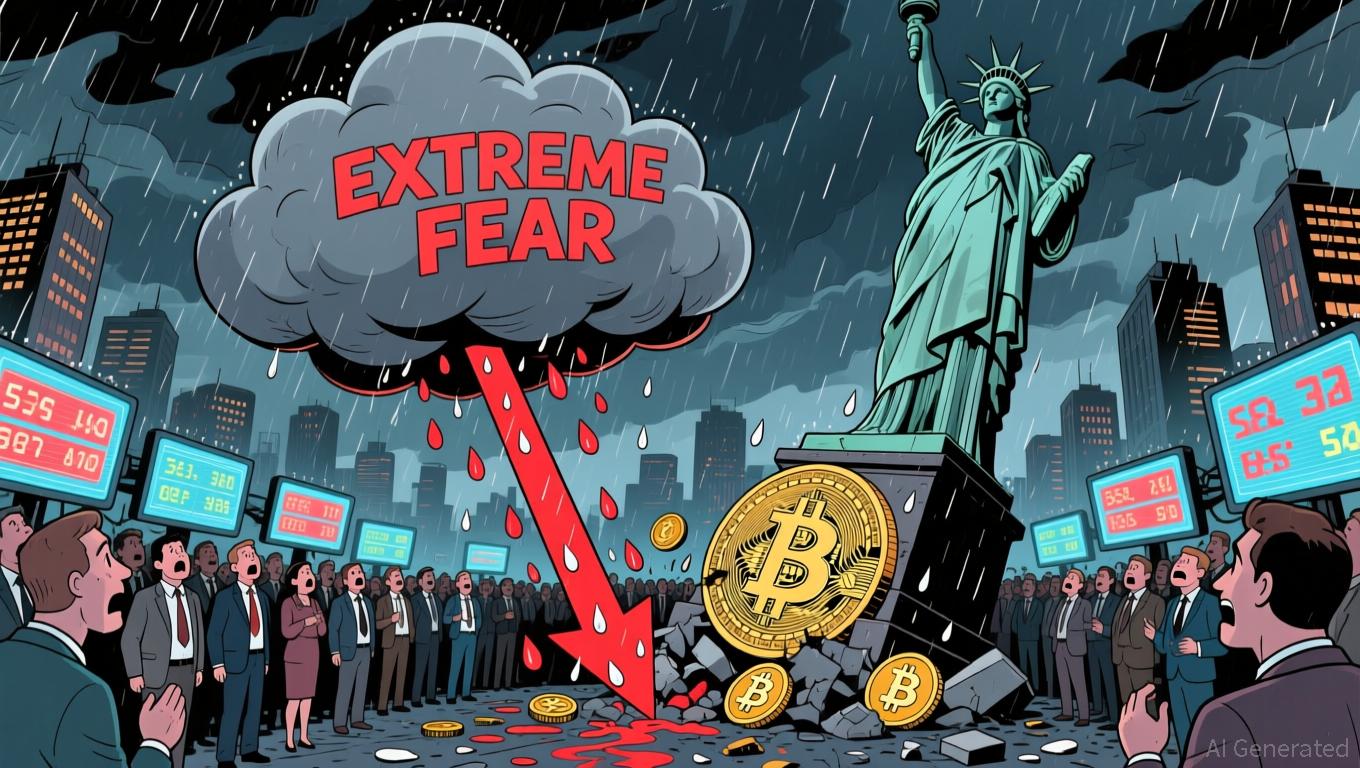BCH Drops 3.4% Over the Past Week Despite Earnings Shortfall and Positive Analyst Revisions
- Chilean bank BCH reported mixed Q3 2025 results with 1.9% YoY net income growth but 2.3% loan decline and 14.1% non-customer income drop. - Analysts upgraded ratings (Zacks to "Strong Buy") despite EPS/Revenue misses, as stock fell 2.1% post-earnings amid 3.4% 7-day decline. - Historical data shows consistent post-earnings declines since 2022, driven by Chile's inflation, high interest rates, and weak SME/lending growth. - Technical indicators (50/200-day averages) suggest bearish near-term trends despit
On November 7, 2025, BCH, a major Chilean bank, released its quarterly report, revealing a blend of positive and challenging results amid ongoing macroeconomic uncertainty. The bank posted a net profit of CLP 927 million, marking a 1.9% increase from the previous year. Its Return on Average Capital (ROAC) reached 22.3%, highlighting strong profitability. Operating revenue climbed 2.1% year-over-year to CLP 736 billion, while income from customers rose 5.4% to CLP 630 billion. For the first nine months, the Net Interest Margin (NIM) was 4.65%, underscoring the bank’s effectiveness in generating interest income.
However, the bank continues to face headwinds. Overall lending activity has remained weak, with total loans shrinking by 2.3% since December 2019, largely due to an 18% reduction in consumer loans. Non-customer income dropped 14.1% compared to the previous year, mainly because of lower inflation-linked earnings. The efficiency ratio was 36.8%, and the risk cost for the third quarter of 2025 stood at 0.8%. Despite these challenges, capital strength remained solid, with a CET1 ratio of 14.2% and a total Basel III capital ratio of 18%, both comfortably above regulatory requirements. The bank’s digital initiatives also made progress, as consumer loan originations increased in both number and value.
Analyst responses to the earnings announcement were mixed. Zacks Research upgraded its rating to “Strong Buy,” and Goldman Sachs raised its price target from $31 to $35. Despite these upgrades, the bank missed Q3 analyst expectations, reporting earnings per share (EPS) of $0.60, below the projected $0.62. Revenue also came in lower than anticipated at $675.26 million, compared to the expected $831.97 million. Following the report, BCH’s stock price dropped by 2.1% in the subsequent days. As of November 15, 2025,
Technical analysis of BCH includes moving averages, with the 50-day average at $32.20 and the 200-day average at $30.44, indicating a short-term bearish outlook despite a relatively high beta of 0.28. Over the last year, the stock has fluctuated between $22.06 and $37.70, and its price-to-earnings ratio is 13.06. The PEG ratio stands at 2.74, suggesting moderate growth expectations relative to its valuation.
Backtest Hypothesis
Between 2022 and 2025, BCH’s stock price has consistently declined following earnings announcements, especially after the Q1 2022 report. Historical trends point to a general decrease in the bank’s valuation, mirroring broader economic concerns such as Chile’s downgraded growth forecasts and rising inflation. While higher interest rates have improved the bank’s net interest margin, they have also slowed mortgage lending and increased the risk of loan defaults. Analyst upgrades and higher price targets have not been enough to counteract the prevailing negative sentiment, particularly in consumer lending. The Chilean banking sector continues to struggle with persistent inflation and tighter monetary policy, both of which have historically pressured BCH’s results. Market sentiment remains negative, shaped by both local and global economic factors, and the bank’s initiatives to attract small and medium-sized enterprises, such as through the Fogape Reactiva program, have yet to deliver significant short-term gains.
Disclaimer: The content of this article solely reflects the author's opinion and does not represent the platform in any capacity. This article is not intended to serve as a reference for making investment decisions.
You may also like
Japan Unveils $110B Stimulus: Major Shift from Fiscal Restraint to Economic Expansion and National Security
- Japan's PM Sanae Takaichi unveils $110B stimulus to combat stagnation and bolster security amid China tensions. - Plan includes tax cuts, utility subsidies, defense spending, and strategic investments in AI, semiconductors , and shipbuilding. - Funded by 14-trillion-yen supplementary budget, with potential expansion to 20-trillion-yen ($133B) as per analyst estimates. - Shift from austerity reflects Takaichi's hardline security stance and response to China's travel advisory over Taiwan remarks. - Impleme

Bitcoin News Update: Bitcoin Reaches $96K Amidst Institutional Interest and Challenges from Regulations and Price Barriers
- Bitcoin surged past $96,000 as buyer accumulation and seller exhaustion drove short-term recovery, though $106,000–$118,000 remains a key resistance zone. - Harvard’s $443M investment in BlackRock’s IBIT highlights growing institutional adoption, contrasting traditional preferences for private equity. - Bitcoin Depot reported 20% Q3 revenue growth but faces regulatory challenges, expanding internationally while projecting Q4 declines due to compliance costs. - MicroStrategy’s Michael Saylor denied Bitcoi

Bitcoin News Today: Bitcoin Faces $62K Drop Threat Amid Fed's Data Silence Predicament
- Bitcoin faces $62K crash risk amid Fed uncertainty caused by U.S. government shutdown's "data blackout" disrupting inflation/labor data. - Post-Nov 13 reopening saw BTC rebound above $102K, but markets remain fragile with 20% decline from October peak despite $140B ETF growth. - Fed rate cut odds dropped to 52% for December, creating volatility as institutions like Harvard Endowment invest $443M in Bitcoin ETFs. - U.S. miners struggle with 37.75% global hashrate share amid lack of federal incentives, con

Bitcoin Updates Now: Crypto Faces a Standstill as Market Anxiety Meets Harvard’s Confident Bitcoin Investment
- Alternative Data's Fear & Greed Index hit record low 10 on Nov 16, signaling extreme crypto market fear and frozen investor sentiment. - Bitcoin fell 5% to $96,000 while CD20 lost 5.8% as profit-taking, liquidations, and liquidity declines accelerated selloffs. - Rising U.S. Treasury yields and central bank uncertainty worsened losses, with Nansen noting "perfect storm" of macro risks and institutional outflows. - Harvard's $443M IBIT ETF investment contrasts current bearishness, highlighting diverging i
